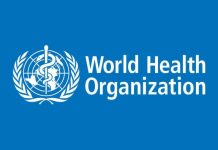-As Pfizer, stakeholders raise awareness on early detection

Contrary to the widespread notion which attributes usage of microwave oven to the development of cancerous cells in the human body, Medical Director, East & Anglo West Africa, Pfizer, Kodjo Soroh, has said microwave oven does not have enough energy to cause breast cancer or any other cancer.
The medical expert who dispelled the microwave oven link with breast cancer emphasised need for early detention of breast cancer, as patients with early presentation have better survival chance, than those with late diagnosis. He made the assertion at the Pfizer’s virtual Media Roundtable, held on Wednesday, to commemorate Breast Cancer Awareness Month.
He said “Microwave cannot cause cancer because it does not have enough energy to distract the DNA. While clinical examination is okay for those that cannot afford mammography, it is recommended for premenopausal women to have annual examination, and post-menopausal women are advised to have breast examination twice yearly.
“Oncology remains a key therapeutic field for Pfizer in which we are working to deliver medical breakthroughs that have the potential to change patients’ lives across the region significantly and we are proud of these achievements, and we thank our media members, colleagues, HCPs and everyone for this event”, he said.
Other medical practitioners at the virtual round table also identified the huge burden of breast cancer in Nigeria, citing the 2020 report of the World Health Organisation’s International Agency for Research on Cancer, Global Cancer Observatory (GLOBACAN) which rated Nigeria higher than Ghana with 28,380 cases of breast cancer, while Ghana has only 4,482 cases.
In her contribution, Consultant Clinical and Radiation Oncologist, NSIA-LUTH Cancer Center, Lagos University Teaching Hospital, Lagos, Nigeria, Dr Adewumi Alabi, emphasised the need for clinical research funding in breast cancer research as she listed various challenges encountered by practitioners and patients due to poor funding. She explained restraints faced by practitioners in administering donated cancer drugs to patients, basically because they have not been clinically tested and proven safe for Nigerians.
Other factors limiting optimal cancer care in the country according to her are, inadequate infrastructure, limited specialists, inadequate awareness creation, late diagnosis, poor diet, global warming, climate change, among others.
“The importance of clinical research in breast cancer care cannot be overemphasized. These forums are critical as they allow us to share our best insights and findings that can support patients in winning the battle against cancer. Breast cancer itself is one of the deadliest diseases with a high prevalence in the area.
“On a positive note, we now have evidence-based updates and real-world data showing the efficacy of prescriptions in the management of HR+ HER2- mBC patients” she remarked.
For Consultant (Radiotherapy and Oncology) and Director National Centre for Radiotherapy Oncology & Nuclear Medicine, Korle-bu Teaching Hospital, Accra, Ghana, Dr Joel Yarney, more is expected of oncologists and radiologists in winning the battle against breast cancer in Africa. He urged them to create more avenues for breast cancer patients to have more information about their care plan and condition.
He said: “The transformative impact of science on breast cancer is evident within the breast cancer community. While we’ve made meaningful change for those living with this disease, our work is far from finished. It is crucial for patients who have been diagnosed with breast cancer or even metastatic breast cancer to have the right information and expectations.
“It is our duty to encourage patients to have open conversations with their healthcare teams to understand how they can be supported and how they can participate in their own care – taking an active role in their treatment can help them feel empowered in making the best decisions for themselves”.
Dr Solomon Obekpa, a general practitioner with Pfizer, expounded on Pfizer’s role in assisting breast cancer patients for over 20 years ago, as they aim at powering more treatment options and more breakthroughs for everyone
He averred that Breast Cancer Awareness Month is more than just one month a year, for the biopharmaceutical company, as It’s an opportunity for them to reaffirm their commitment to changing the lives of people with breast cancer for the better – from treatment to helping to remove barriers to equitable care and beyond.
“Cancer care is driven by the hope to move forward — powered by everything and everyone around you. Beginning with each individual’s decision and actions, their community of friends, families and advocates and the scientists and researchers who dedicate their lives to developing new treatments”, he stated.










